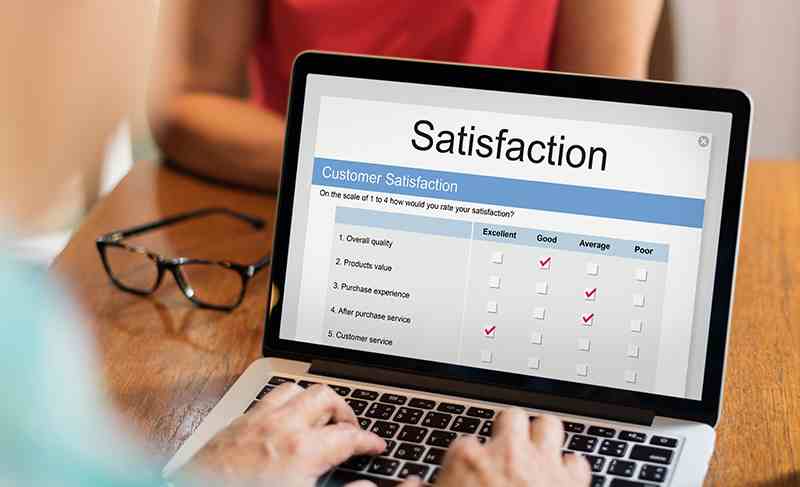Parking Analytics & How to Use Provided Data

These days, there is a lot of discussion about data and how it can automate practically every operation. Data is being used by businesses of all sizes to enhance service quality and save expenses. Smart parking management systems are no exception. Parking analytics is an extremely beneficial tool if you own or run a parking lot, garage, or multi-storey car park. In this blog post, we will look at the multiple advantages of parking analytics and how you can utilize the information and analytics supplied to optimize your pricing strategy, identify crucial issues, and maximize revenues.
Table of contents:
Why is Data Important?
Data is the fuel that powers your organization. Without it, you are flying blind and cannot make informed decisions. This knowledge is what enables you to comprehend business performance, identify opportunities for growth and improvement, and predict future trends. It also helps you measure the effectiveness of marketing campaigns, sales initiatives, or investments in your parking lot management.
Data helps you make better business decisions by providing you with a clearer picture of where your company is now, where it has been, and where it may be going in the future. Quality parking analytics is essential because it provides context for all the other things that happen within your car park on a daily basis—from customer interactions to product performing results—so that they can be measured against one another to determine how well they're working together toward common goals like profitability or growth objectives.

What Types of Data are Available?
Data is a huge part of the decision-making process. It comes in many forms, and it's important to grasp the distinctions between them so you can utilize it as efficiently as possible.
Here are the four types of analytic data that are often utilized in the parking sector:
- Descriptive analytics is used to describe what happened in a particular situation. You might use this kind of data to describe how many customers parked in your parking lot on a certain day, or how long they remained on average. For example, "78% of people who park on your lot spend an average of 2 hours there”.
- Diagnostic analytics helps you understand why something happened by looking at past performance. For instance, if your revenue rose this week, you might utilize diagnostic analytics to determine if it was due to more individuals parking on your lot or to an increase in the average parking stay.
- Predictive analytics uses historical information to predict future events or outcomes. They are based on observed correlations between variables in prior data sets and are used to identify patterns or situations that may occur in the future. Predictive analytics may be used to anticipate when a parking garage will fill up, allowing you to make pricing modifications or prevent future overcrowding issues.
- Prescriptive analytics takes things one step further and helps determine what should happen next based on what has already happened. It uses machine learning algorithms to anticipate future behavior based on previous patterns. For example, if predictive analytics predicts an increase in consumers at a certain time of day due to a special event, prescriptive analytics might propose staffing modifications or pricing changes based on those projections.
Data may be collected from a variety of sources, including license plate recognition cameras, smart meters, individual parking space sensors, parking management systems, mobile phone applications that enable users to pay for parking remotely, and so on.
How is the Data Used?
The act of evaluating databases and applying them to identify patterns, trends, and relationships is known as data analytics. It is often used in business to enhance operations by studying how people engage with systems, products, and services. By studying how individuals utilize their parking spots or garages, data analytics assists parking lot and garage management. Understanding the frequency of usage, space turnover, and length of stay allows you to make more educated decisions.
Understanding Parking Patterns
Parking patterns are a great way to learn about how your clients interact with your business. You can use this information to improve your parking management efforts.
Analyzing parking data helps you understand the implications of rate changes, forecast the impact of targeting pricing for things like special events or demand-based pricing, and better understanding the causes of revenue fluctuations.
The information you get from analyzing parking patterns can help you make better decisions about your parking management strategy. For example, if you see that most customers arrive during lunchtime, then you might want to increase rates during that time period.
Improving User Experience
Parking analytics can help you identify problems with your existing parking lot, including confusing signage and congested areas. The ability to track how long customers are spending in the parking lot will also allow you to see if there are any bottlenecks that need to be addressed.
In addition to identifying problems, parking analytics can also provide solutions! For example, if you find that your customers tend to get lost in your parking lot or spend too much time looking for an exit, then you can use this information to improve the way you design your signage.

Adjust Operational Strategies
Data-driven operational strategies are fast becoming the norm. The more you know about analyzing provided statistics, the better you can use it to enhance your parking management.
There are two ways in which you can analyze your car park data; manually or automatically. Manual analysis entails manually going over all of the information using Excel or Google Sheets. This method is not only time-consuming but also prone to mistakes as there is no guarantee that all records will be captured accurately by one person alone especially if they have been recorded by several persons over an extended period of time.
In contrast, the automated analysis makes use of software such as Car Park Management Systems. Parking management systems provide owners and managers of parking lots, garages, and multi-storey car parks with the most detailed data reports that are easy to comprehend and interpret. It helps them to understand the usage of their car parks, track trends, and make plans for future developments. The most common way of analyzing car park data is through reports. These are generated by the parking software based on the information provided by the detection system, ANPR cameras, or sensors installed in each parking space.
Also read: Underground Garages and Multy-Storey Car Parks Parking Management Solutions and Systems
What Does This Mean for Parking Operators?
Parking operators are often requested to provide feedback on the functioning of their facilities. The request may be for monthly information on parking usage, income, and expenditures, or for a report on how well the facility is functioning. In any case, parking operators are responsible for creating information that others may use to make managing decisions.
This is precisely where smart parking systems excel. Intelligent parking systems are intended to offer a comprehensive picture of all aspects of a parking facility. This means that parking operators can easily produce reports on the performance of their facilities and provide them to parking managers who can then make data-driven decisions, leverage the provided records to increase revenue or even use it for future marketing campaigns.
Making Data-Driven Decisions
Data-driven decisions make companies more efficient, increase revenue and save money. Indeed, the ability to generate, capture, analyze and act on this knowledge is transforming every industry — including parking.
This enables businesses to focus on the right things at the right time and avoid costly mistakes that could have been prevented with more information. However, it’s not just about collecting information; it’s also about analyzing it to make better business decisions. This is what separates good parking management systems from great ones.

Increasing Revenue
One of the most important things that any business needs to know is how much to charge for its services or products. This is especially true when it comes to parking lots. Modern parking analytics softwares have tools built in that allow you to set prices based on demand and occupancy rates so that you don’t overcharge or undercharge customers.
However, there are some other ways to increase revenue from your parking lot. The first step is to get an understanding of what your customers want and need. You can then tailor your services to meet those needs while also increasing revenue at the same time. One way that you can do this is by offering discounts for longer-term stays. You can also offer special discounts on certain days or during certain hours so that people are incentivized to park in your lot during those off-peak times. Another way that you can increase revenue from your parking lot is by offering additional services such as car washes or detailing services.
Shaping Your Marketing Campaigns
The data gathered from your parking software can also be used to shape your marketing campaigns. You can target specific locations and times of day, or even specific vehicles, to reach customers with special offers, coupons, or discounts. This is a great way to boost your bottom line, as well as increase repeat business and customer loyalty.
It's particularly handy for shopping malls that need to attract customers but don't want to spend money on pricey advertising campaigns. For example, by knowing when people are most likely to visit your mall based on the data gathered by parking software, you can customize your marketing messages accordingly.
Putting It All Together
Analytics are essential for any business, whether it's improving workflows or developing business strategies, and parking management software is no exception. If you want to attract more visitors, boost employee productivity, or simply learn more about what your customers want, you must begin collecting and analyzing data using professional parking management software. The possibilities are endless, so keep an eye on the smart parking industry to take advantage of everything it has to offer.


